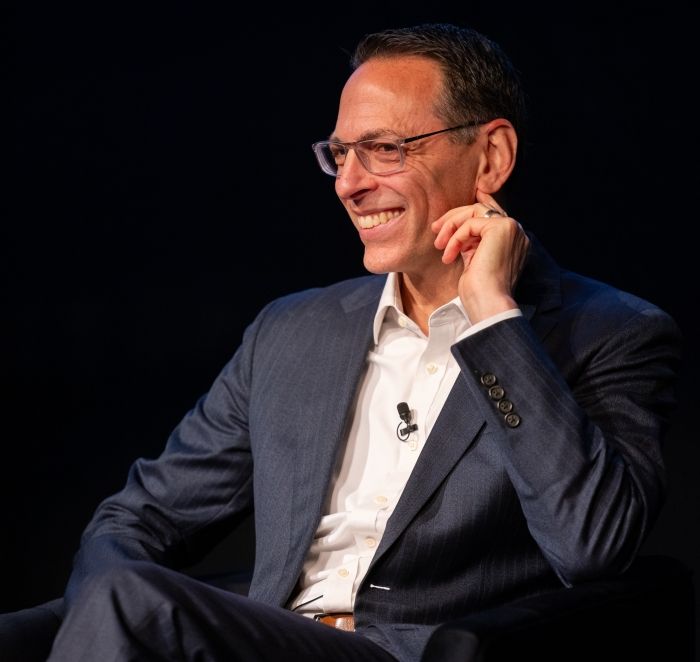Prof. Brescia Reflects on Intersection of 9/11, COVID Response

Professor Ray Brescia was working in New York City in September 2001. He recalled the 11th was a crisp fall day, one so nice that he got off the subway a stop early to walk a few extra blocks to his office on Lower Broadway.
Once he got to his office, he heard a loud and low rumble, like thunder. But how? It was a beautiful day.
Word flowed through his office — planes had hit the World Trade Center towers.
Remembering the February 1993 bombing of the World Trade Center, Brescia knew people would need help.
He mobilized his colleagues at the Urban Justice Center and others in the building to collect their office water jugs for an inevitable rush of people.
“We got downstairs onto Broadway and we set up coffee tables. There was just a swarm of people walking up Broadway. Not everyone had cell phones then and if they did, they were not working,” he said. “We let people in to use our phones. Some people had really been just wiped out by the dust and we're having a hard time breathing.”
There wasn’t much lawyering to be done in the moment.
But later on – as the dust was, quite literally, settling – he and his colleagues knew many people would need lawyers and advocates.
“As things progressed, legal services organizations were very much needed. People needed help to get unemployment benefits, survivor benefits, healthcare, and so much more. There were also foundations that pooled money for people to access for help but we had to help get the word out.”
In particular, Brescia’s Urban Justice Center represented the Restaurant Opportunities Center—a nonprofit that provided support for displaced restaurant workers after the attacks—the organization is now a national group with branches across the country.
“It was really a critical time. For us as lawyers, it was, ‘Let's do what we can with the tools that we have.’ We didn't try to do things that didn't know how to do, but rather we found places where we knew what we did would make a difference,” he said.
After his career moved on from the Urban Justice Center to Albany Law School, Brescia has remained a proponent of crisis and response lawyering.
“This galvanizing experience from 9/11 really helped inform the subsequent work that I have been doing around crisis lawyering,” he said.
His most recent book, which he co-edited with Eric Stern from the University at Albany’s College of Emergency Preparedness, Homeland Security, and Cybersecurity, Crisis Lawyering: Effective Legal Advocacy in Emergency Situations (with Eric K. Stern, editors) sketches out the field of crisis lawyering and how legal professionals are often some of the first to respond to the fallout of a critical situation such as terrorist attacks, hurricanes, or global pandemics.
“The pandemic has taught us that every lawyer should be prepared to be a crisis lawyer at some point in their career. Pretty much every lawyer has been a crisis lawyer in the midst of the pandemic,” he said.
He further dissected the topic in Ethics in Pandemics: The Lawyer for the (Crisis) Situation which was published in the Georgetown Journal of Legal Ethics this year.
“All of this has really helped me to reframe and look at my own practice, the way I teach, and some of the ethical questions that often arise in impending crisis,” he said.





